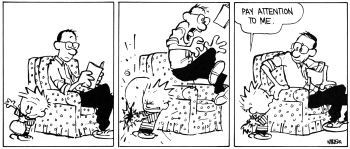Turning a house into a
retirement home
On a couple of occasions our building has started to look like a retirement home. This seems to be the furthest possible thing from a site that has hosted competitive tennis players for years, and is also used by a wide range of holiday-makers and business people for their overnight stays.

This retirement home look has happened several times and you'd think we'd try to do everything to stop this happening. On the contrary.
Generations under one roof
To understand our approach, you need to step back a little and get some perspective. We have lived in this house since 1991. Soon that will be 28 years in the same house. Not only is this a sign of a total love affair with a house, but it is also a sign of a generation passing. Our daughter was born elsewhere before moving into this house. But our son was born locally. He has spent all of his life in this house, through his childhood, and he is now a young adult. As it happens he is now on the point of being professionally qualified, and all of his job offers will almost certainly require him to move away from here.
This is distressing him. It isn't because he doesn't know what it is like to live in other places, it is because he will stop being part of the story of this house. One part of this story has been his grandparents. His grandparents were Bavarian and lived in a very pleasant town about eight hours drive from here. That means that they didn't come round to our place every ten minutes. It also meant crossing into another country, into France. For a pair of Bavarians who had grown up in Hitler Germany, this was like taking a step into a primitive dangerous world. As it happens, they loved coming to France, and to this house, because of the wider comfort it gave. We have large spacious rooms, a huge garden, and immediate access to the countryside with our regular walks. We always had to get into the car to go shopping, so we had to plan carefully what provisions we had in the house. They enjoyed having this isolation, and at the same time being close to their children, and grandchildren in this same isolation. The sensations were very pronounced for them and for us.
After many years of routine visits, we all decided that the visits had to stop. It was nothing to do with the house. The problem was getting the grandparents to complete the journey. The trains had changed, meaning a longer journey, with more train changes, and with changes under significant time pressure. For two old people with less and less mobility, and always no orientation or understanding of where they were, this entailed too much risk. So we tried to approach this differently. We then decided that the grandparents should move permanently to our house.

Attention-seeking
So, after getting the agreement of the grandparents, we then started some adaptation of the living area, to take into account their ever-failing mobility. We also had to consider the house itself. If we had visitors, would this disturb their stay? Would it be a problem for these older people to be around, to be taking all our attention?
The problem is that older people need a lot of attention. You cannot deny them this attention either, since this is the very thing that has caused our cultural rejection of old people. Through our busy lives, our endless little and big car journeys, and our addiction to our smartphones, old people have found themselves being pushed into corners and ignored. You could do with old people what many do with children. You could just plop them in front of the TV, give them a cup of tea, and just let them be. As with children, this does work, but there are consequences. The less you communicate with a human being, the more easy it is to make errors, to have misunderstandings. Communication needs permanent oiling and practice. I work in the communications industry, and I notice when I am becoming lazy and inefficient. What is it like for normal people, who hang onto a few dozen words per day, where I hang onto thousands?

The other factor is the grandparents themselves. As with all lives, they have had to suffer at various points. Some of the suffering has been out of their control, such as war. Some of it has been having to deal with tight finances, or a difficult child. Life is throwing things at you all the time, and mostly we have trouble dealing with it. These two grandparents are relatively untouched by these events. They have never understood the need to communicate on the web, nor the need to have a car. They have lived on bicycles, and in their garden and in their kitchen and living room. Their world has been very small. Their demands on life have been refreshingly simple. Without them necessarily being "family" people, the family is the only real connection they have to an outside world, other than the TV news, the newspaper, and fleeting contact with neighbours. That means that their family members are very central in their lives. They always want to know what is going on.
So you have two grandparents who have experienced hard times, but don't show it. They show attachment to their family, without being demonstrative and affected. I have observed the children growing up with grandparents like this, and these two people have been exceptionally positive. The definite interest that they have shown towards their grandchildren, has been reciprocated by the grandchildren. Quite naturally, the childre have given back. They haven't buried themselves in machines and their friends. No, they have spent time with the grandparents, and communicated with them pleasurably. We have often heard that the connection between parents and children can become fractious, whereas grandparents to grandchildren rarely turns out in this way. We have experienced this very positively, and so we have welcomed any suggestion of the grandparents living with us permanently.
Some of our guests have been elderly, maybe not quite as old as the grandparents, but you can see that stage of life coming up. My wife and I, we'll be next. Would we ever want to be shoved into the TV corner with a cup of tea? The more I think about it, the more horror I have.
Old people need, more than we can ever imagine, contact with younger people. If it is contact with younger family members, then this is ideal, because, however things turn out, our lives mostly revolve around family. Whatever unsavoury situations arise, it is still family. You've found a mess, and you've got yourself out of it. These are the big trials in life that mark us, and the old people have this in spades. They often forget the details, they often forget the significance of the big moments, but their ability to continue looking at life as a blessing, and one to be experienced with others, is catching. We should keep them in our houses as long as possible.
Permanent
residency available

Ask about our rates for permanent residency on site, with or without round the clock care.
